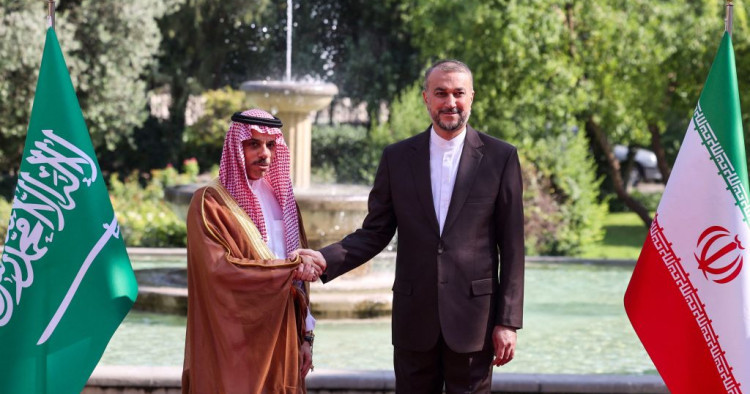Two days after the Hamas attack on Israel last weekend, a top Iranian official said that “Arab states willing to normalize relations with Israel [should] give up the process and learn a lesson from the latest developments in Palestine.” The comment makes one thing clear: Like Hamas, Tehran wants to stop Arab diplomatic normalization with Israel. This sort of warning from Tehran to the Gulf states also reflects a grand strategy of evicting Israel but also the United States from the Middle East. Iran wants to be a regional leader. However, the complex set of ties that exist between the Gulf states, Israel, and the United States will make that Iranian quest impossible in the short term.
The broader impact of the war between Hamas and Israel that began on Oct. 7, 2023, will take time to unfold. But already the warring sides and their supporters are vowing that the Middle East cannot go back to business as usual. As Iran maintains its commitment to Hamas, Israel will explore ways to limit Tehran’s regional influence. This Iranian-Israeli escalation, and possibly U.S.-Iranian escalation in turn, will be a test for ongoing Iranian efforts aimed at détente with the Arab countries of the Persian Gulf. The Gulf states, sensitive to Arab public opinion, will sit tight as regards Israel to see in which direction this latest round of hostilities will go. But the Gulf states invested in ties with Washington should not indulge Tehran’s aspirations to undercut U.S.-Gulf relations as the Middle East, in all likelihood, is entering a new era.
Continue reading in War on the Rocks
Photo by ATTA KENARE/AFP via Getty Images
The Middle East Institute (MEI) is an independent, non-partisan, non-for-profit, educational organization. It does not engage in advocacy and its scholars’ opinions are their own. MEI welcomes financial donations, but retains sole editorial control over its work and its publications reflect only the authors’ views. For a listing of MEI donors, please click here.













